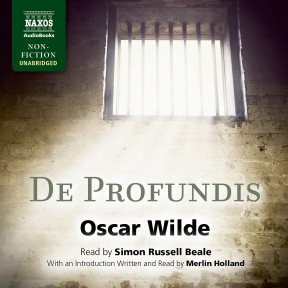The NAB Blog
Oscar Wilde’s De Profundis
By Anthony Anderson
1 November 2015
 Few men in history have fallen from grace quite as spectacularly as Oscar Wilde. In 1895 he was at the height of his fame and his best-known work, The Importance of Being Earnest, was still being performed in London. Encouraged by his young lover Alfred Douglas (Bosie), Wilde unsuccessfully prosecuted the Marquess of Queensberry (Bosie’s father) for libel. The evidence that emerged during these legal proceedings led to Wilde being arrested for what was then described as gross indecency. After two trials – the jury was undecided in the first one – Wilde was convicted and sentenced to two years imprisonment with hard labour.
Few men in history have fallen from grace quite as spectacularly as Oscar Wilde. In 1895 he was at the height of his fame and his best-known work, The Importance of Being Earnest, was still being performed in London. Encouraged by his young lover Alfred Douglas (Bosie), Wilde unsuccessfully prosecuted the Marquess of Queensberry (Bosie’s father) for libel. The evidence that emerged during these legal proceedings led to Wilde being arrested for what was then described as gross indecency. After two trials – the jury was undecided in the first one – Wilde was convicted and sentenced to two years imprisonment with hard labour.
Due to intervention by the Liberal MP and reformer Richard Haldane, Wilde was transferred in November 1895 to Reading Gaol (where he was known simply as prisoner C.3.3), following stints in Pentonville and Wandsworth. In the early part of his imprisonment he was allowed, like all other prisoners, to write a letter only once every three months, under strict supervision. It was only subsequently that, as an exception, Wilde was allowed access to writing materials. This led to De Profundis, his letter to Bosie, which was written over a three-month period in the early part of 1897.
Not only was De Profundis the last prose work that Wilde wrote, but it is surely his most poignant. It does not attempt to be a self-defence, but rather an explanation of his behaviour and actions. It is wide-ranging in both its themes and its emotional tenor. Resentment against Bosie for having driven Wilde to pursue Queensberry through the courts (resulting in his incarceration), coupled to his abandonment of Wilde in prison, gives way to prolonged self-analysis in which Wilde, as the suffering artist, goes so far as to identify himself with Christ. Throughout there is a strong sense of Wilde having been broken by his prison experience; but for all that, the emerging voice is still recognisably his.
It is hard to think of a better performer for this work than the leading stage actor of our generation, Simon Russell Beale. To hear the letter read out loud gives us a unique and heart-rending window into Wilde’s very soul. He effortlessly captures the gloom and despair of Wilde’s situation – a cry from the depths indeed –, yet this is tempered by glimpses of his customary wit.
Our new recording of De Profundis also contains an introduction written and read by Merlin Holland, Wilde’s only surviving grandson, who gives his own unique account of the creation and content of the work.
Anthony Anderson
Managing Director, Naxos AudioBooks
« Previous entry • Latest Entry • The NAB Blog Archive • Next entry »